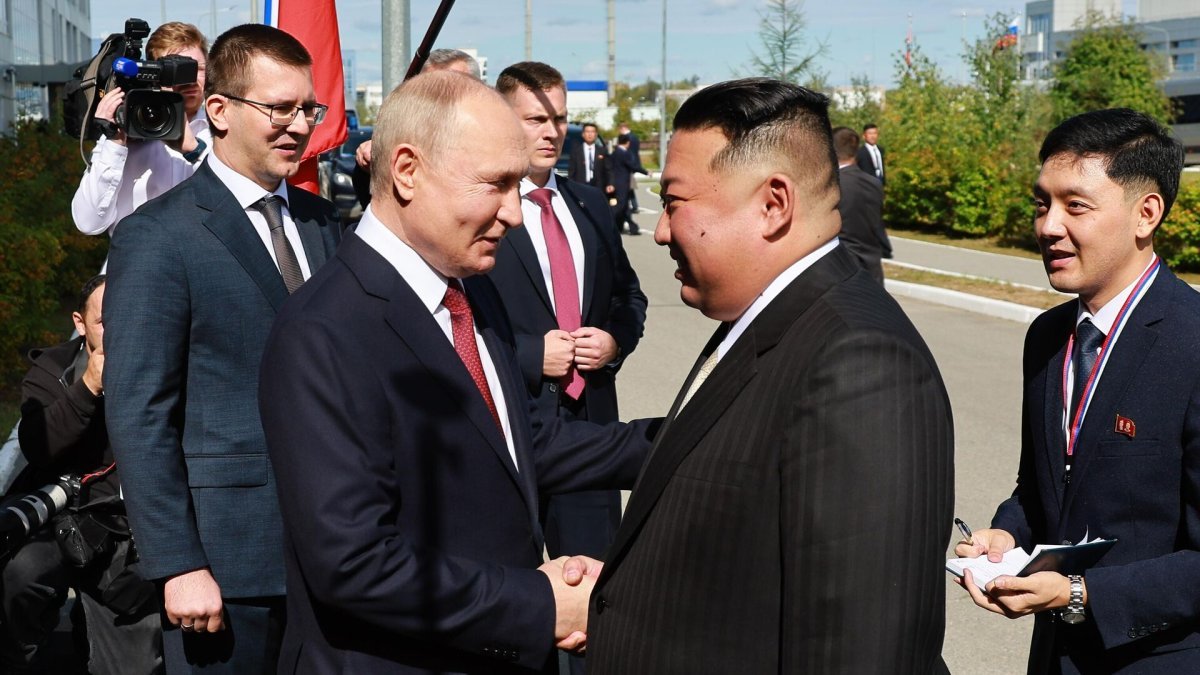This marks the second meeting between Kim Jong Un and Putin.

North Korean leader Kim Jong Un held one-on-one talks with Vladimir Putin, as reported by Sarbaz.kz, citing RIA News.
Western media outlets and analysts closely watch the visit of North Korean leader Kim Jong Un to Russia, which could be a key development. North Korea may receive significant investment, humanitarian aid, and technological support from Russia in exchange for its substantial stockpiles of ammunition. There is also speculation that, amidst record-low unemployment in Russia, the country may be interested in North Korean labor.
The North Korean delegation included the Minister of Foreign Affairs, high-ranking military officials, and officials overseeing the defense industry and military technology, possibly including Pyongyang's nuclear program.
Kim Jong Un doesn't frequently travel abroad. During his 12 years in power, he has made only seven trips beyond his country's borders and crossed the border twice. Four of these trips were to China, North Korea's primary ally. Regarding the current summit, it marks the second meeting between Kim and Putin; the two leaders first met in 2019.
Commenting on US warnings regarding potential Russian assistance to North Korea, Kremlin spokesman Dmitry Peskov stated, "As you know, in our relations with neighbors, including North Korea, the interests of our two countries are important to us, and we will focus on them, not on Washington's warnings."
In response, the Chinese Ministry of Foreign Affairs stated:
"China does not want an escalation of the conflict in Ukraine due to North Korea producing ammunition used in this conflict."
Washington later stated that the US would attempt to dissuade Pyongyang from assisting Moscow and threatened that if North Korea chose to help Russia, it would "pay a price" in the eyes of the international community.
According to the Associated Press, if North Korea were to provide weapons to Russia, they would likely expect Moscow to provide energy and food assistance in return. Of course, as expected, both Pyongyang and Moscow denied that North Korea could supply weapons to Russia, which has been actively depleting its ammunition reserves for over 18 months. Russian officials, as reported by Russian media, even suggest that the negotiations could also involve humanitarian aid to North Korea and resolutions to UN Security Council sanctions that North Korea would like to see reduced.
Russian forces are particularly in need of artillery ammunition, so Moscow may be interested in obtaining such weaponry from North Korea. Pyongyang likely possesses tens of millions of artillery and missile shells manufactured using Soviet-era technology. The possible transfer of some of this arsenal to Russia could be a significant support for Russia during its invasion of a neighboring country.
However, it should be noted that the massive stockpiles of ammunition in North Korea are unreliable. The US and South Korea have repeatedly reported that during regular exercises, over half of these munitions fall into the waters around South Korea's Jeju Island, and approximately 20% of those that reach the island fail to detonate. Reports have suggested that such a high failure rate suggests that some types of artillery munitions produced in North Korea either had poor quality control during manufacturing or were poorly stored under inadequate conditions. It can be expected that if North Korea were to sell ammunition to Russia, they might encounter similar issues, potentially even severe problems, stemming from the use of an unreliable ammunition stockpile.